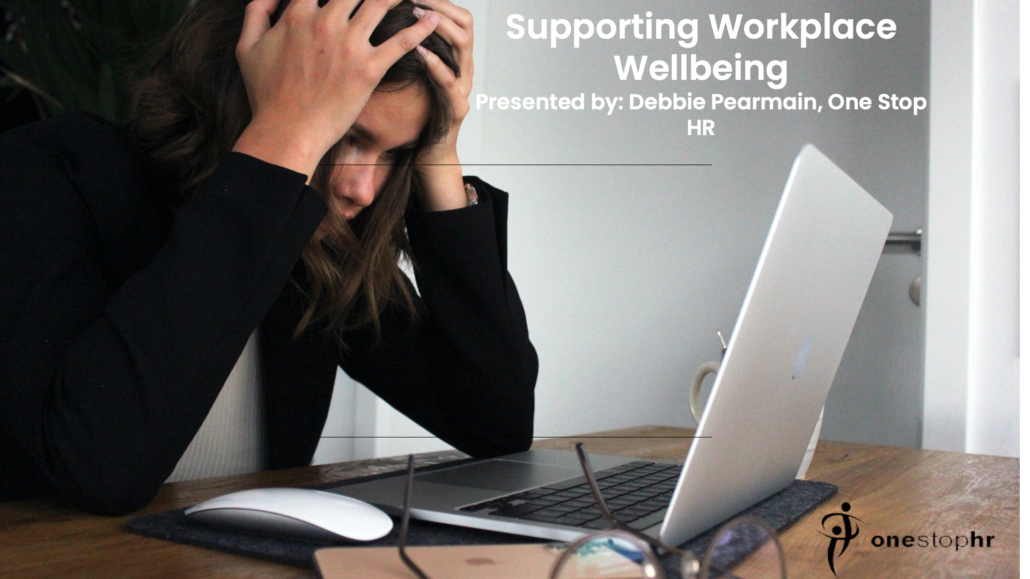Supporting Workplace Wellbeing – Feb 24, 2022

Our membership was treated to a compelling presentation on Mental Health Performance Management today by Debbie Pearmain, Senior HR Consultant.
To kick off the presentation, Debbie shared some interesting statistics: the average usage rate for Canadian organizations of the EAP (Employee Assistance Providers) program is between 6.9% and 12% – so it’s evident that employees aren’t using it. Additionally, only 30% of people who experience mental health issues will actually access any type of help due to fear of judgement or consequence.
Mental health has widespread impacts on business. Deloitte put out a very interesting study recently. The ROI in Workplace Mental Health Programs: Good for People / Good for Business highlighted that as many as 50% of your employees are struggling with mental health. Employees these days are concerned with company culture, and whether it is safe both physically AND emotionally. We are facing a labour shortage, as well as high competition in the workplace for talent. We need to be looking at how we are addressing this issue of wellness/wellbeing in the workplace to retain our employees, as it is one of the major reasons reported as to why high performers are leaving their organizations.
Debbie outlined that the top reasons mental health programs are not working is because business owners and leaders have not “bought in” to the responsibility, or have not committed. Ensure that your leaders are educated so that they understand mental health so that it does not become a STD or LTD claim. Leaders should be able to feel confident/comfortable tackling issues with employees. Leaders’ responsibility is to build trust in the organization, recognize the signs early on that someone is struggling, then become the bridge/ facilitator to get the help they need.
Mental health responsibility ultimately falls in the hands of the individual, however we want it to be a collaboration, with the employer. In order for this to happen, we need to educate both pieces of that partnership. Far too often employees believe that it is the manager’s responsibility. Ensure that you are also giving employees the same mental health training, but from a slightly different lens.
A few suggestions on creating a good mental health culture in the workplace: Offering healthy snacks, Employee Assistance Providers, yoga & meditation, gym or gym membership, training, smoking cessation programs, and extended benefits such as paramedical (massage/chiro/physio/naturopath etc). Typically, extended benefits cover very minimal counselling options. It is usually only psychologists, and due to the cost and the waitlist in many communities, this becomes prohibitive. Consider covering registered clinical counsellors which are more prevalent in the community. Note the max amount for counselling that is provided – perhaps this needs to increase either per session or overall.
Thank you to Debbie for an excellent presentation, we look forward to hearing from you again in the future!



